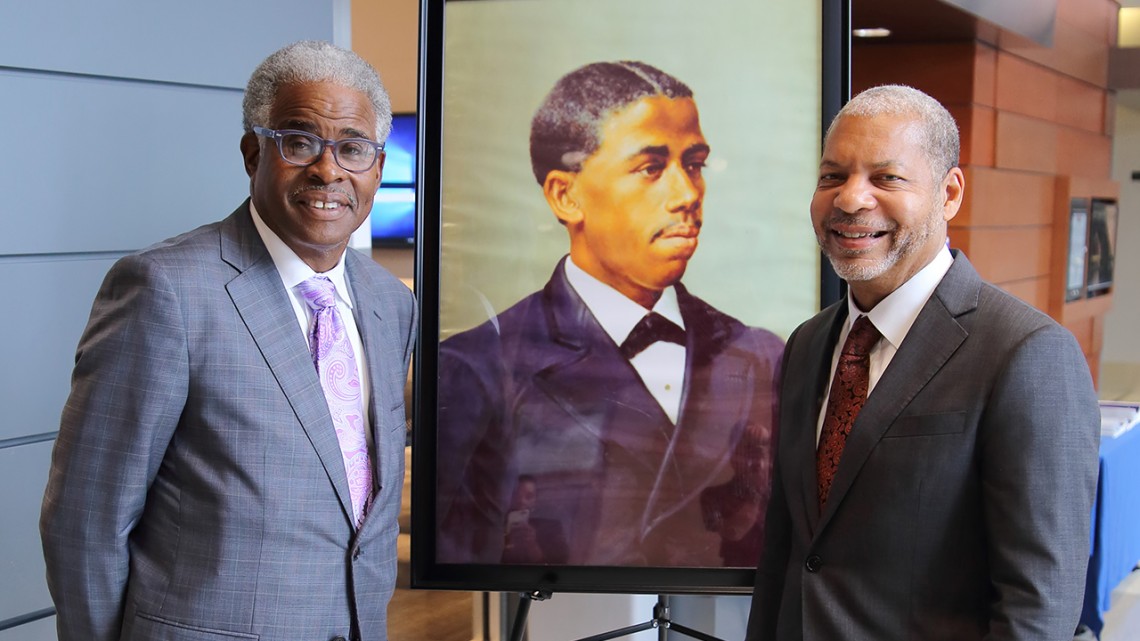
Gary Harris, dean of the Howard University Graduate School, left, and Lance Collins, the Joseph Silbert Dean of Engineering at Cornell, stand next to a portrait of Edward Bouchet following a forum in which Collins was presented with the Edward Bouchet Legacy Award.
Collins receives award for ‘cultivating new generation of scholars’
By Syl Kapacyr
Lance Collins, the Joseph Silbert Dean of Engineering at Cornell, was presented with the Edward Bouchet Legacy Award during a forum hosted at Howard University in Washington, D.C., Sept. 13.
The annual award is given by the Edward Bouchet Society – established by Howard and Yale universities in 2005 – to recognize esteemed educators and advocates committed to cultivating a new generation of scholars, particularly those who promote diversity and inclusion.
“I am humbled to have been selected and to have been included in such a prestigious group that came before me,” said Collins. Past recipients include university presidents, a nonprofit chair and a U.S. senator. “I view this as an enormous achievement, and I am eternally thankful for the selection.”
Collins expressed his appreciation for the award’s namesake, Edward Bouchet, a physicist who in 1876 became the first African-American to earn a doctorate in the U.S., but noted the slow progress of diversity in higher education in the subsequent 100 years.
In 1981, Collins was among the first African-Americans to receive a chemical engineering degree from Princeton University and was the first to receive a Ph.D. from the University of Pennsylvania’s School of Engineering and Applied Sciences.
“It’s wonderful, but it’s daunting and says a lot about those 100 years,” said Collins. “Then at Cornell, I became the first black dean.”
Collins said diversity and excellence have often been considered mutually exclusive, a sentiment he has disproved at Cornell. During his tenure as dean, he nearly doubled the proportion of underrepresented minority students to 21 percent, while their average GPA rose by 8.6 percent. And undergraduate female enrollment has grown to 50 percent – more than twice the national average – while GPA and graduation rates between men and women remain equal.
“I’m able take advantage of the competitiveness at Cornell,” said Collins. “Cornell likes to run hard, and I say we can run harder if we’re able [to diversify our student body]. That was a winning argument.”
Syl Kacapyr is public relations and content manager for the College of Engineering.
Media Contact
Get Cornell news delivered right to your inbox.
Subscribe
